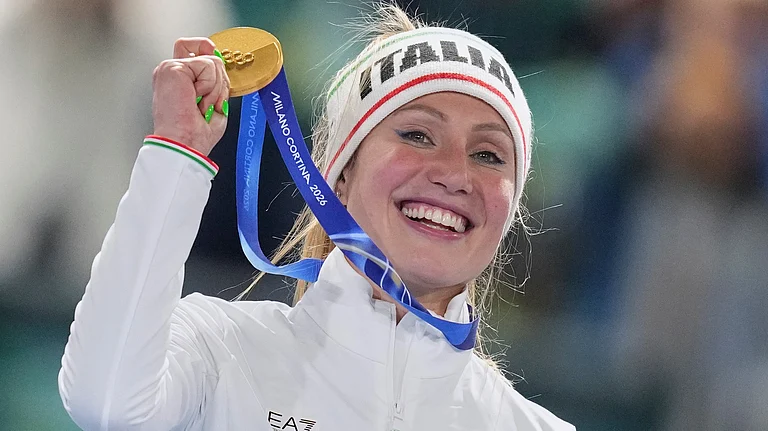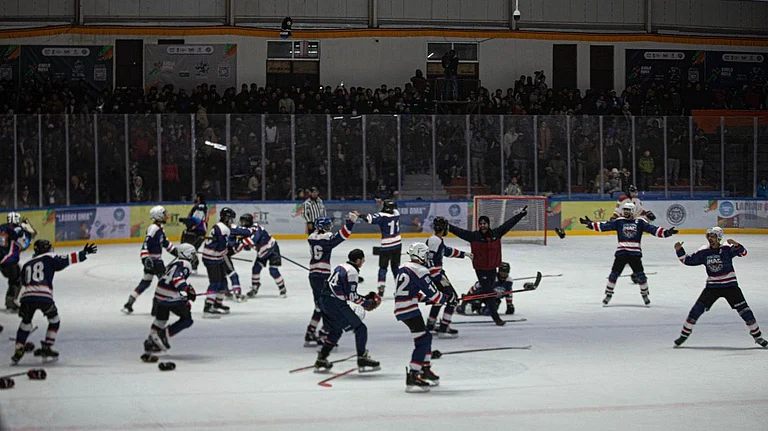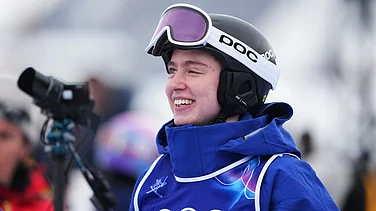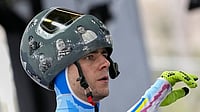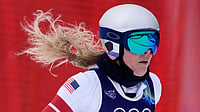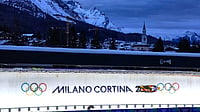Antoine Dupont enhanced his reputation as the world's premier rugby player when he kicked off the Paris Olympics with a gold medal for the host nation. (Full Coverage | More Sports News)
Portia Woodman-Wickliffe signed off on her illustrious sevens career with yet another title for New Zealand.
Ilona Maher made sure the world beyond the sport's traditional audience was watching, and helped the U.S. women's team win a bronze.
The 553,000 spectators who filled Stade de France to capacity across six days ensured it was quite the spectacle.
“We knew we represented rugby but also every sport," Dupont said of the pressure his rugby sevens squad felt to win gold on the first official day of competition. "When you walk into the Olympic village, you feel patriotic. We wanted to start the Games in the best way possible.”
He was the little general, engineering France's win over two-time champion Fiji.
The men's rugby sevens tournament started two days before the Paris Games officially kicked off in an unconventional opening ceremony that used the Seine River and the city's famous landmarks as the venues and backdrops.
That made Stade de France accessible earlier than usual for a main Olympic stadium, and rugby jumped in — boots and all — with the full support of the French organizers.
Allez Les Bleus.
The French men, who hadn't won a title on the men's world sevens tour in almost two decades before Dupont took a sabbatical from the France's national XV in March to work with the sevens squad, are now world series and Olympic champions.
“The Olympics Sevens has truly been a coming-of-age moment for the sport," World Rugby chairman Bill Beaumont said after New Zealand retained the women's title with a victory over Canada to conclude the rugby program. “Rugby has reached more people in more nations that ever before, on and off the field.”
Thanks to the likes of Maher, who has the biggest social media following of any rugby player. She even recruited recently retired NFL star Jason Kelce as a super fan.
Fanfare
There was little doubt that fervent French supporters would fill the national stadium to capacity — 69,000 for the matches of the Paris Games — in the hope of Dupont delivering the host nation's first gold.
That applied also to the French women's team, who won silver at Tokyo three years ago and were hoping to go one better at home.
But even when the French women bowed out of medal contention, the crowd returned the next day to see New Zealand retain the title and the U.S. upset Australia for bronze with Alex Sedrick's length-of-the-field try.
“It's an amazing audience. You've got your avid French fans who really know their rugby but there are loads of kids, families. The noise out there is different,” Sally Horrox, World Rugby's director of women's rugby, said as the women's medal matches were about to start. "There's a lot of new people to rugby in there.
“Yeah, I think they're falling in love with it. The joy and the fun is amazing.”
The men's and women's sevens tournaments each featured 12 squads and were each three days, with teams of seven playing two 15-minute games each day on a full-size rugby field.
It's fast-paced and the rotation of teams kept the crowds buzzing. The sevens format has been popular for decades in the Pacific islands, New Zealand, Australia, Britain, France and South Africa. It's been growing in popularity in North and South America since becoming an Olympic sport for the 2016 Games in Rio de Janeiro. And it's now catching on in places like mainland China, where the women's team had upset wins over Tokyo bronze medalist Fiji and Britain.
Coming to America
Momentum for sevens is expected to continue leading into the 2028 Olympics in Los Angeles.
“In Rio, it was really under the radar. Tokyo, we were behind closed doors. So this is the first opportunity it's had to shine," Horrox said. “So I think with Los Angeles, they will definitely put it again on that world stage and they'll do it in an American way, in an American style.”
Women's Elite Rugby used the U.S. medal as a hook to announce that Boston, Chicago and Denver would be three of the first markets to host teams in the first professional women's rugby competition in the United States, starting next year.
U.S. women's sevens coach Emilie Bydwell, one of the few female coaches at the elite level, said there are athletes out there who could convert to rugby now and possibly win an Olympic medal in 2028.
“Rugby is coming for the U.S. (and) sevens is the best place to start because it's exciting, electric, physical," she said. "We have ... a goal for home gold' but I'm realizing that this is the moment right now for us to capitalize on.
“People who haven't watched rugby are writing, What is this? This is crazy, these women are amazing."







